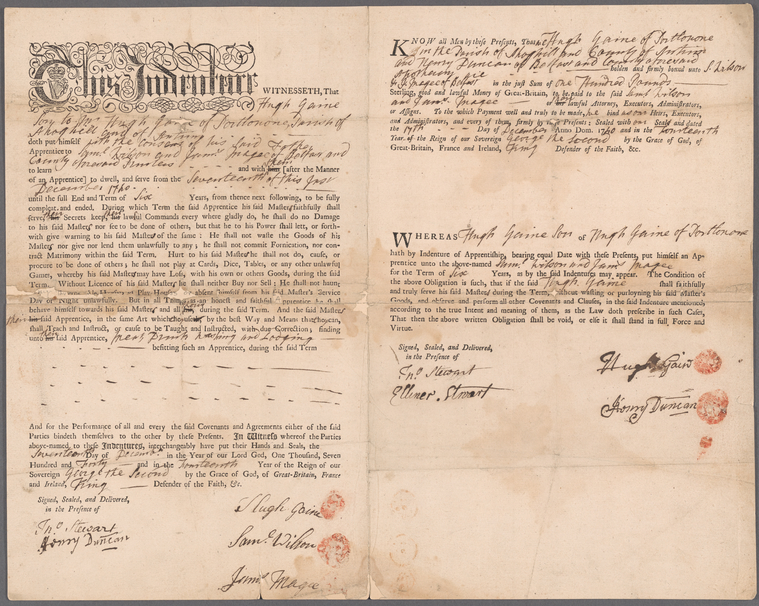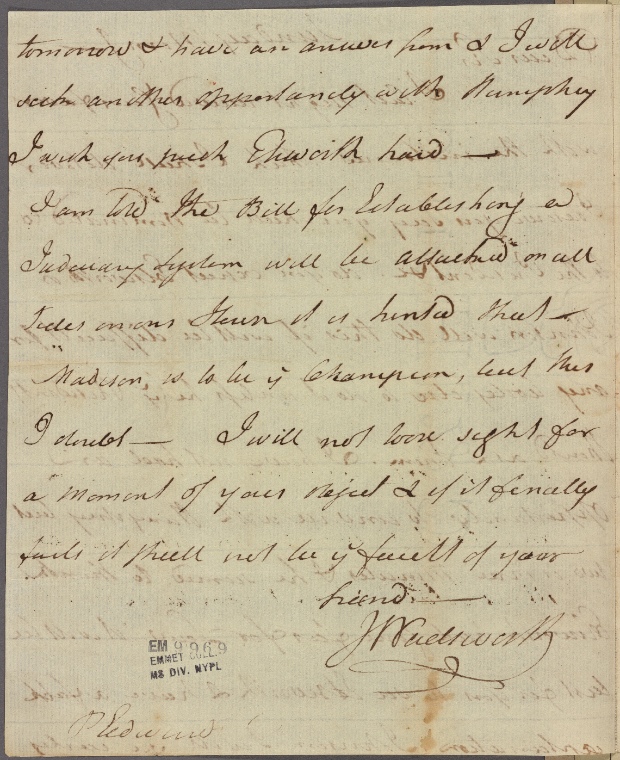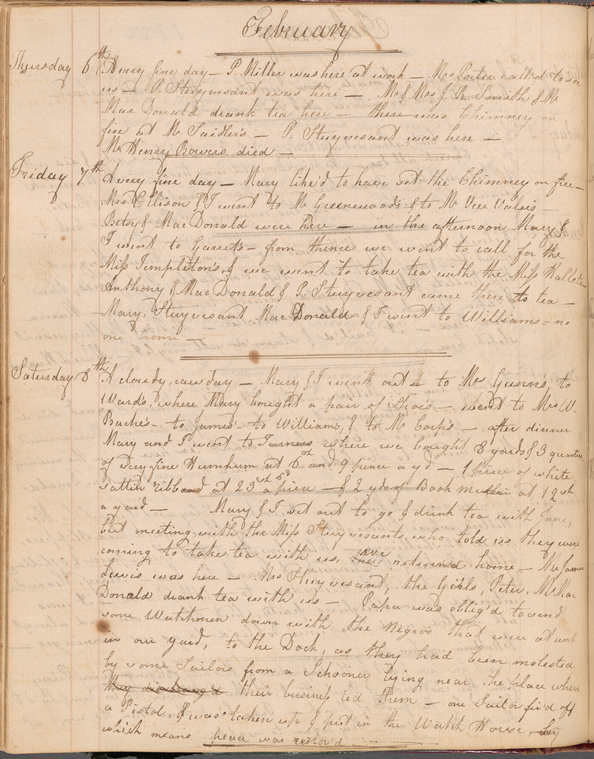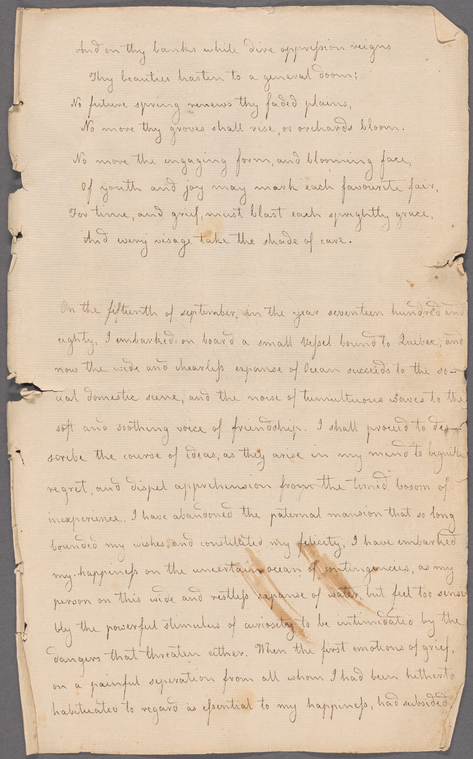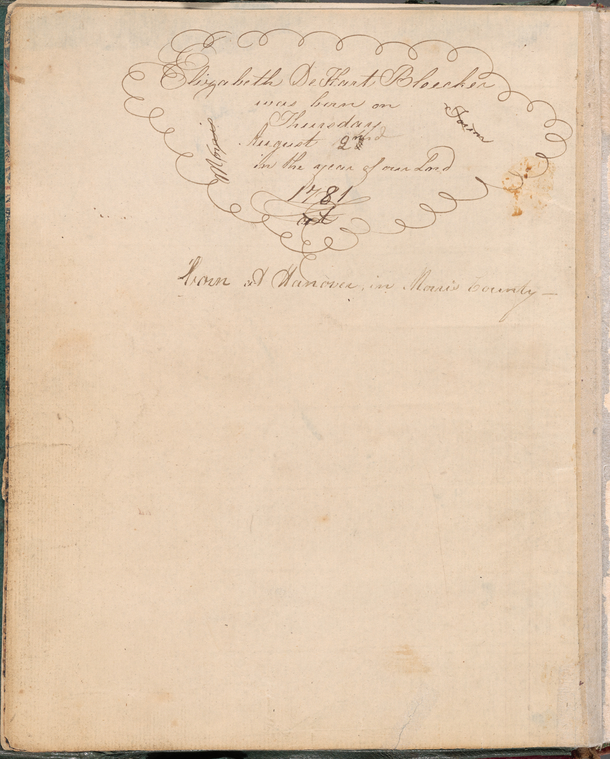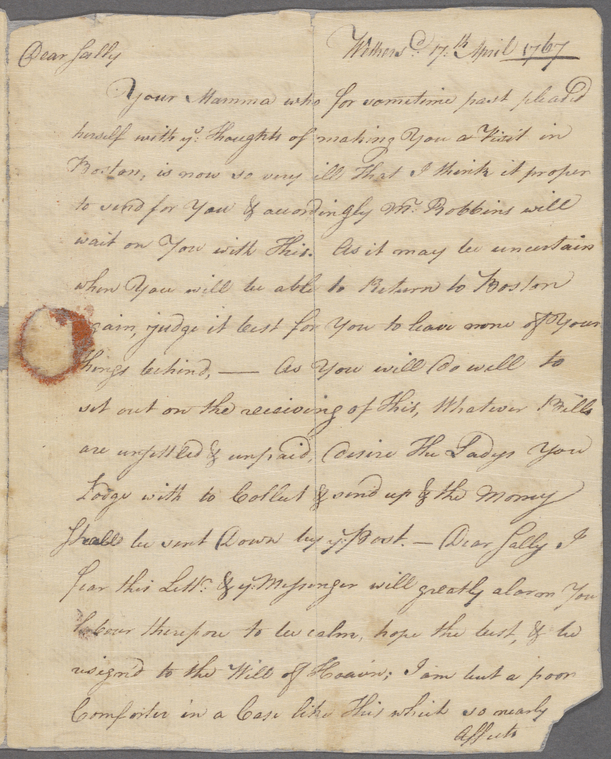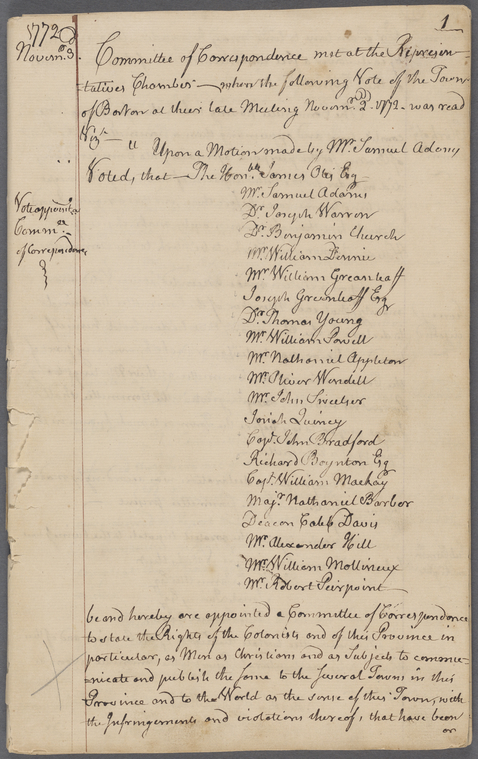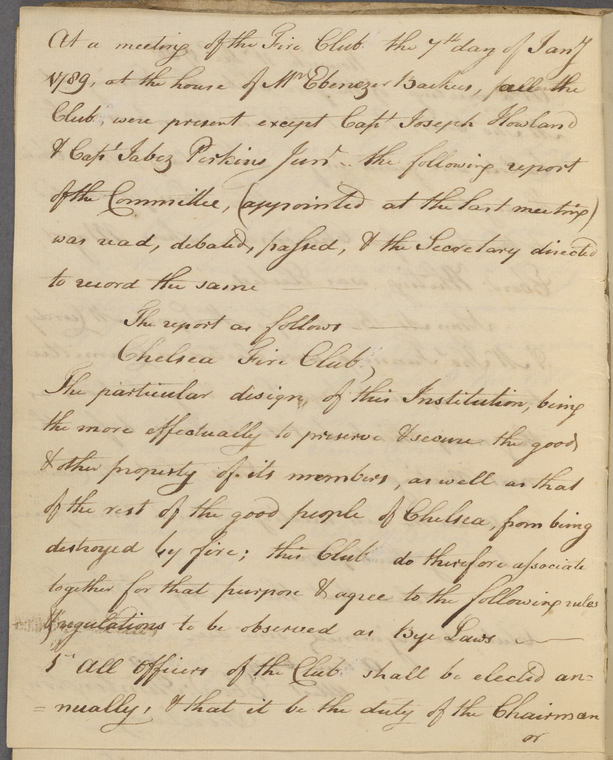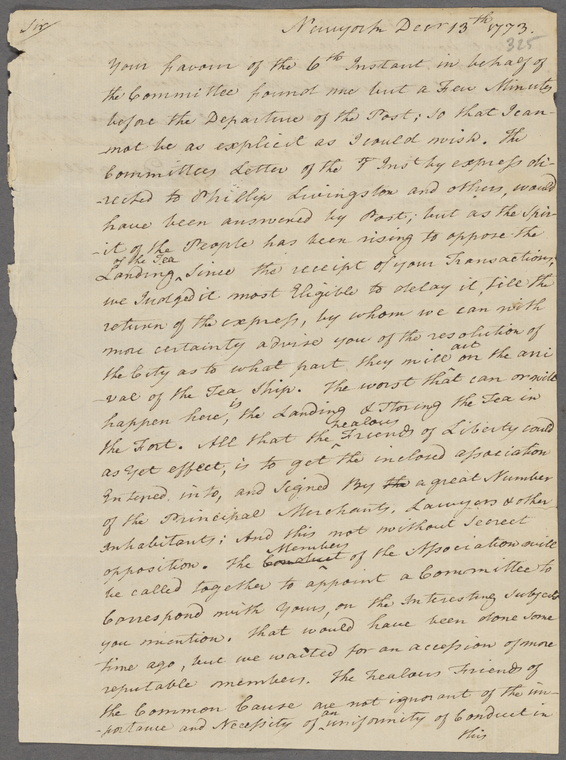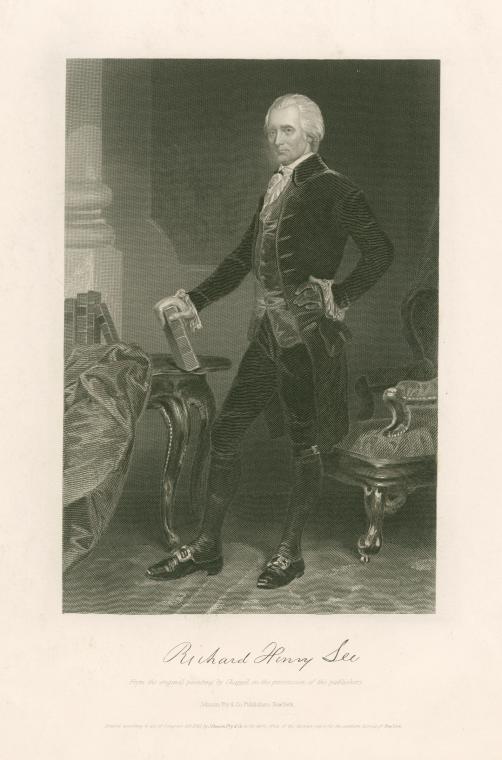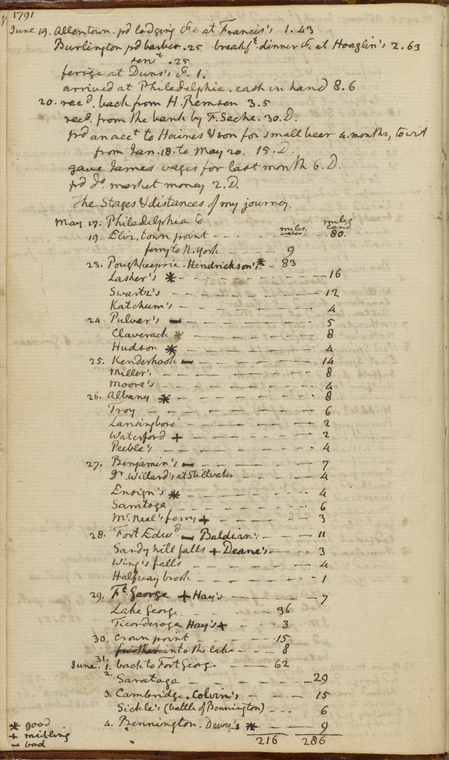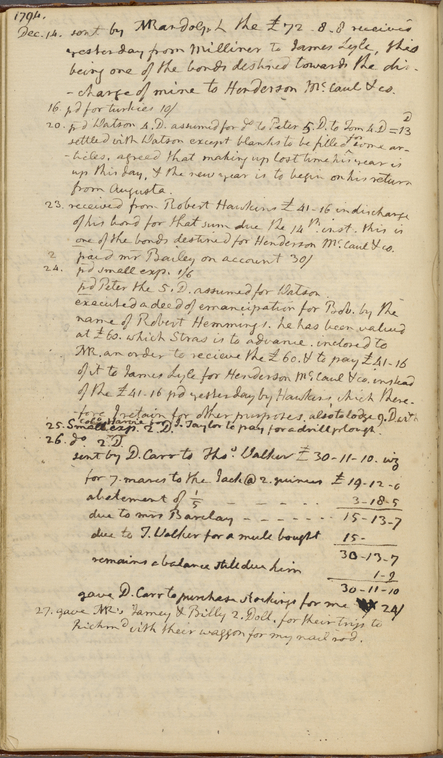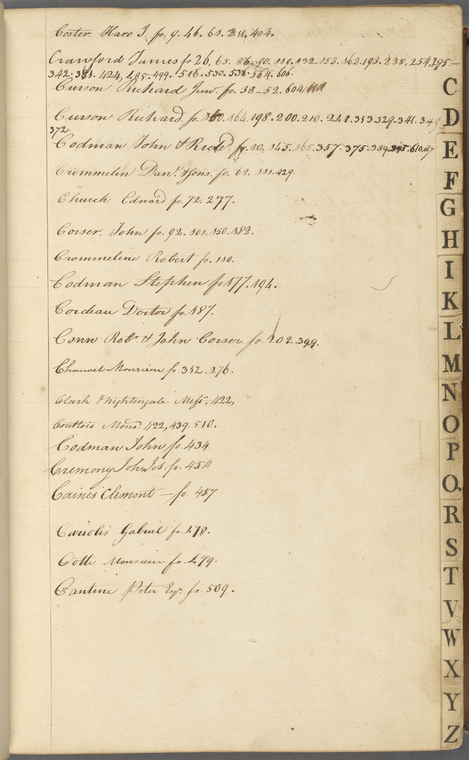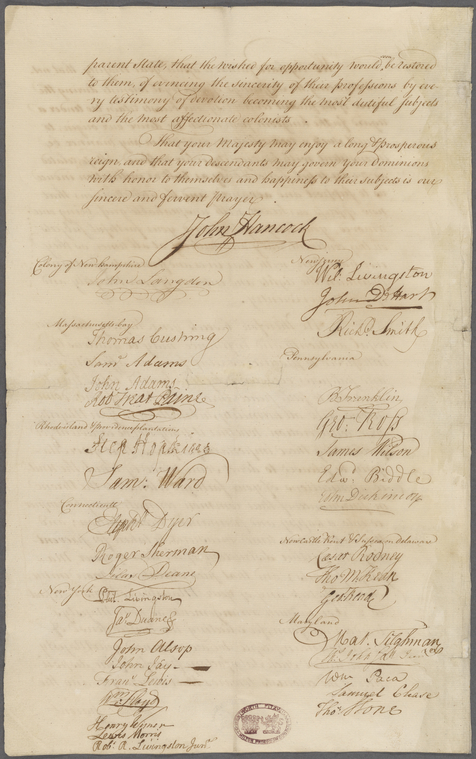Recently Digitized Early American Manuscript Collections, March 2016
by Mark Boonshoft
March 15, 2016
Recently digitized collections of early American manuscripts.
Politicizing the Federal Courts in Early America
by Mark Boonshoft
February 17, 2016
We often bemoan the recent politicization of the federal courts and especially appointments to the Supreme Court, but this has been a source of political strife since the creation of the federal judiciary. The judicial politics of the Jeffersonian era help explain why the Supreme Court remains such a charged issue in our own time.
Elizabeth De Hart Bleecker Diary, February 8, 1800
by Mark Boonshoft
February 8, 2016
Elizabeth De Hart Bleecker lived through a tumultuous period in the history of labor in New York City. Here is a page from her diary, 216 years ago today.
Hannah Lawrence Schieffelin's Journey Through Revolutionary America
by Mark Boonshoft
January 25, 2016
On September 15, 1780, Hannah Lawrence Schieffelin “abandoned the paternal mansion that so long bounded my wishes,” boarded a “small vessel,” and left her home in New York for Quebec. Her narrative describes events, peoples, and places far removed from the center of the American Revolutionary struggle.
The Diary of Elizabeth De Hart Bleecker, 1799-1806
by Mark Boonshoft
January 14, 2016
Periodically, for the next year, we will write blog posts featuring a single entry, or a series of entries, from the Bleecker diary: a source from and about New York City in its formative era.
Silas Deane: Reading and Parenting in Revolutionary America
by Mark Boonshoft
December 21, 2015
Political elites are well represented in archival collections. One of the great virtues for historians is that a lot of their family correspondence survives, though it is not always included in edited volumes that focus on political events. Through these papers we can glimpse family life at an emotional level.
Top 9 Documents from the Boston Committee of Correspondence Records
by Mark Boonshoft
November 30, 2015
The BCC records is an important resource for understanding the American Revolution. But it is also a massive and unwieldy one. To make things easier, I've put together a list of nine important and representative documents from the BCC records, which, taken together, offer a rough outline of the BCC's activities and functions during the 1770s and 1780s, as well as a sense of the Committee's place in the larger story of the American Revolution.
The United States of Fredonia?
by Mark Boonshoft
November 12, 2015
“It was a great oversight” of the Constitution’s framers that they did not give the United States a “proper name.”
Founding Firefighters: Volunteer Firefighters and Early American Constitutional History
by Mark Boonshoft
October 22, 2015
The Chelsea Fire Club formed in late 1788 to protect the people and buildings of Norwich, Connecticut from being destroyed by fire. The records of the Fire Club reveal far more about how early Americans grappled with the challenge of self-government than about firefighting.
Joseph Hawley Papers Digitized
by Mark Boonshoft
October 8, 2015
As part of the Early American Manuscripts Project, the Library has just digitized and made available online the Joseph Hawley papers. Hawley was a lawyer, legislator, and militia officer from Northampton, Massachusetts.
Reintroducing the Boston Committee of Correspondence Records
by Mark Boonshoft
October 6, 2015
Looking back on the Revolution in 1815, John Adams remarked that “The History of the United States never can be written” without the records of the Boston Committee of Correspondence.
Unexpected Sources: Slave Cloth in the Richard Henry Lee Letters
by Mark Boonshoft
September 3, 2015
One of the most surprising letters I have recently come across is held in a small group of Richard Henry Lee correspondence: a passing reference that serves as an indication of slavery’s enormous economic influence.
Traveling the Roads of Early America with Jefferson
by Mark Boonshoft
August 12, 2015
Thomas Jefferson recorded, measured, and calculated things obsessively. He kept copious notes in his account book on the distances he traversed and the roads he traveled.
Traces from Jefferson's Account Book: The Hemings Family
by Mark Boonshoft
July 27, 2015
The New York Public Library has just digitized Jefferson’s manuscript account book from 1791 to 1803. The volume is basically a day-by-day running record of Jefferson’s transactions. The account book offers a glimpse of how Jefferson interacted with his world on a daily basis.
Letterbooks, Indexes, and Learning about Early American Business
by Mark Boonshoft
July 20, 2015
Letterbooks were the hard drives of their day. Businessmen and merchants used letterbooks to keep records of their business transactions. To learn about how everyday life worked in a given period, there really is no substitute for these and other manuscript sources.
The Olive Branch and the Declaration of Independence
by Mark Boonshoft
June 30, 2015
Was the Declaration of Independence really necessary? Or was it widely understood by the end of 1775 that the American colonies were already engaged in a war for independence? The key to answering these questions about July 4, 1776 begins with the events of July 5, 1775, when the Second Continental Congress approved the Olive Branch Petition.
George Chalmers and the History Wars of the American Revolutionary Era
by Mark Boonshoft
June 12, 2015
George Chalmers was a sore loser. Born in Scotland in 1742, Chalmers came to Maryland in 1763 and practiced as an attorney until 1775. Hostilities between Britain and its colonies drove the ardent loyalist to leave North America for London. In England, Chalmers began amassing documents and writing histories about colonial North America and British imperial policy in the seventeenth and eighteenth centuries.
 With your library card, it's easier than ever to choose from more than 300,000 e-books on SimplyE, The New York Public Library's free e-reader app. Gain access to digital resources for all ages, including e-books, audiobooks, databases, and more.
With your library card, it's easier than ever to choose from more than 300,000 e-books on SimplyE, The New York Public Library's free e-reader app. Gain access to digital resources for all ages, including e-books, audiobooks, databases, and more.